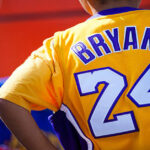In an era dominated by digital communication, abbreviations, misspellings, and memes can become linguistic landmarks. One such phrase — “jweles bu” — has been quietly making the rounds across social platforms, private chats, and internet subcultures. But what exactly does “jweles bu” mean? In its purest interpretation, “jweles bu” is not a formally recognized word or phrase but rather a typographical distortion or stylized expression with layered meanings. Whether used intentionally for aesthetic, humorous, or cultural reasons, this term is becoming a symbol of modern online identity and expression.
Understanding “jweles bu” requires more than a dictionary search. It’s a story of internet evolution, digital creativity, and the subtle ways people alter language to express themselves. This article explores the possible interpretations, usage contexts, cultural implications, and linguistic impact of this unusual yet intriguing term.
Origins and Context: Where Does “Jweles Bu” Come From?
“Jweles bu” appears to be a phonetically or visually altered version of a phrase or term, possibly related to “jewels” or a stylized username, phrase, or meme. Online communities — especially those on TikTok, Reddit, and Discord — have a rich tradition of spawning idiosyncratic phrases that gain meaning only through collective usage. Often, these terms are born from typos, autocorrect errors, inside jokes, or aesthetic preferences like removing vowels or adding soft phonetic consonants.
In the case of “jweles bu,” several potential interpretations arise:
- A stylized way of saying “Jewels by You”
- A username or brand combining “jewels” and a phonetic “boo” (slang for a partner or admirer)
- A digital meme or AI-generated anomaly adopted as slang
The mystery is part of the charm. In digital culture, ambiguity fosters deeper engagement as people speculate, reinterpret, and share their versions of the truth.
Why the Internet Loves Linguistic Play
The internet is no stranger to invented phrases. From “yeet” to “sus,” digital vernacular evolves rapidly. A single mistyped word can snowball into a meme or subcultural expression. What makes terms like “jweles bu” intriguing is that they operate in a linguistic gray area — they mean something, but that meaning is fluid.
People use such phrases:
- As identity markers: To signal group membership (e.g., gamers, fandoms, crypto communities)
- To create humor: Misspellings or phonetic spellings often appear funnier than proper grammar
- To obscure meaning: Giving phrases insider-only meaning boosts their cultural currency
- To stylize usernames or content: Aesthetic appeal can make even nonsense words feel significant
This context makes “jweles bu” a textbook example of how microcultures on the internet shape new forms of expression.
Table: Common Uses and Interpretations of “Jweles Bu”
| Context of Use | Possible Interpretation | Platform/Medium Commonly Seen | Cultural Implication |
| Casual Texts | Term of endearment or aesthetic | WhatsApp, iMessage | Emotive, playful language |
| Usernames | “Jewels by you” (stylized) | Instagram, TikTok | Personal branding, creative identity |
| Internet Memes | Typo adopted as joke | Reddit, Twitter | Humor and collective reinterpretation |
| AI/Chatbot Text | Random generation with perceived meaning | AI-generated apps | Symbol of language mutation via AI |
| Song/Album Titles | Artistic wordplay | SoundCloud, YouTube | Music aesthetic, Gen-Z artistic license |
Language Evolution in the Digital Age
Language has always evolved with culture, but digital platforms have accelerated that evolution. Where older generations relied on formal structures of grammar and syntax, younger generations often thrive in linguistic chaos. Words like “jweles bu” represent not degradation, but evolution — a bending of language into new, sometimes non-linear forms that reflect emotional states, memes, and cultural movements.
Several phenomena explain this:
- Typographic Aesthetic: People now write based on how something looks, not just what it means.
- Phonetic Translation: Users mimic sounds using unusual spellings.
- Meme Culture: Repetition of absurdities reinforces their social presence.
- AI Linguistics: AI-generated text introduces unpredictable phrase combinations that humans sometimes find meaning in.
This suggests that phrases like “jweles bu” aren’t just jokes or typos. They’re fragments of a broader shift toward emotionally expressive, visually creative communication.
The Rise of Aesthetic Misspellings
Misspellings have become a trend. In fact, they often outperform their correctly spelled counterparts in terms of engagement and memorability. “Jweles bu” sounds like it might fall into the aesthetic misspelling category — a deliberate tweak of “Jewels by” to make it cuter, cooler, or more intriguing.
Take other examples:
- “Luv” instead of “Love”
- “Thicc” instead of “Thick”
- “Gurl” instead of “Girl”
- “Hwello” instead of “Hello”
All these variations maintain their original meanings while injecting charm, humor, or identity. This linguistic playfulness encourages creativity and allows users to express themselves in visually unique ways.
Branding Potential of “Jweles Bu”
Interestingly, “jweles bu” has potential as a brand name — particularly in sectors like jewelry, fashion, digital content, or even NFTs (non-fungible tokens). Its unique structure and open-ended meaning make it ripe for interpretation and branding.
What makes it brand-friendly:
- Memorable: Quirky phrases tend to stick in the mind
- Flexible: Can be applied to jewelry, makeup, art, or digital products
- Search-optimized: Its uniqueness allows for easy indexing and trademarking
- Emotionally resonant: Combines aesthetic with possible romantic undertone (“bu” as “boo”)
A startup could take “jweles bu” and turn it into an entire brand identity centered on youthful creativity, mystery, and digital-native aesthetics.
How Gen-Z and Gen-Alpha Drive Linguistic Shifts
Generations born after 2000 — Gen-Z and Gen-Alpha — are the primary architects of this kind of language. They grew up with smartphones, memes, and stylized usernames. Their native language is visual, emotionally expressive, and evolving faster than any previous generation’s.
Why they gravitate toward phrases like “jweles bu”:
- They value authenticity over perfection.
- They enjoy shared inside jokes that reinforce community.
- They embrace AI influence and remix culture.
- They are adept at multi-platform communication, where meaning shifts across apps.
This demographic doesn’t need “jweles bu” to be officially defined. Its meaning lies in how it’s used, not what it originally meant.
AI, Chatbots, and Accidental Linguistic Creations
Some phrases like “jweles bu” may originate from AI chatbots or predictive text algorithms. As AI becomes more integrated into daily life — through smart replies, content generation, and voice assistants — it occasionally produces word pairings that are odd yet captivating. Users then adopt these terms either for fun or as part of digital folklore.
An AI may have generated “jweles bu” during a language training session or as a random suggestion, but its journey to becoming meaningful lies entirely in how humans choose to use it.
This highlights a fascinating future: the co-creation of language between humans and machines.
The Emotional Texture of Internet Words
Not all words are created for meaning alone. Some exist primarily to evoke a feeling. “Jweles bu” may not mean anything concrete, but it feels like something — soft, affectionate, playful. This emotional texture is crucial in internet communication, where tone is often hard to convey.
Other emotionally textured words include:
- “UwU”: A face that conveys cuteness or affection
- “Oof”: An expression of minor pain or surprise
- “Yas”: Enthusiastic yes, used in LGBTQ+ and pop culture spaces
“Jweles bu” shares that sensibility. It’s not just a term; it’s an emotional aesthetic.
Implications for Linguistics and Communication Studies
Linguists are increasingly interested in how digital culture shapes new languages. While “jweles bu” may not yet appear in scholarly journals, it represents a growing trend that is being studied across disciplines, from digital anthropology to computational linguistics.
Questions raised include:
- How do non-standard phrases spread virally?
- How do AI systems contribute to new vocabulary?
- What does it mean when people find meaning in nonsense?
By tracking phrases like “jweles bu,” researchers can better understand how internet communities develop linguistic norms and cultural codes.
Could “Jweles Bu” Become the Next Big Meme?
Memes often begin with obscure, context-less phrases. “Dogecoin” was once a joke. “Cheugy” emerged from a single TikTok. If “jweles bu” continues to be used creatively, it could easily become the next viral meme — used in GIFs, videos, product names, or even music.
The meme lifecycle typically follows:
- Birth (usually a typo, joke, or AI generation)
- Adoption (used by early adopters or niche groups)
- Diffusion (spreads via social media)
- Commercialization (brands or influencers adopt it)
- Saturation (widely used, eventually fades or transforms)
Currently, “jweles bu” seems to be between stages 1 and 2 — fertile ground for meme growth.
Conclusion: Language is What We Make It
At the heart of this discussion lies a core truth: language is not fixed. It evolves based on use, community, emotion, and sometimes even error. “Jweles bu” might never appear in the Oxford English Dictionary. It may not have a fixed meaning. But in today’s digital world, that doesn’t matter. Its value lies in its ambiguity, its aesthetic, and its potential to be whatever users want it to be.
Whether it’s a term of endearment, a stylish username, a brand in waiting, or simply a joke among friends — “jweles bu” is a symbol of how language is morphing before our eyes.
If history is any guide, today’s nonsense word could be tomorrow’s cultural milestone.
FAQs About “Jweles Bu”
1. What does “jweles bu” actually mean?
“Jweles bu” doesn’t have a formal dictionary definition. It’s likely a stylized phrase derived from “jewels by you,” a digital aesthetic expression, or a phonetic reinterpretation with emotional or cultural subtext. Its meaning is flexible and largely shaped by context.
2. Is “jweles bu” a brand or just slang?
As of now, “jweles bu” is primarily an informal or creative phrase used in social media usernames, meme culture, and digital art spaces. However, due to its unique visual appeal, it holds strong branding potential in fashion, jewelry, or music-related ventures.
3. Where did the term “jweles bu” originate?
Its precise origin is unclear — it may stem from a typo, a stylized social media handle, or even AI-generated text. Like many digital expressions, it gained traction through informal online use and cultural remixing.
4. Why do people use terms like “jweles bu” that don’t have clear meanings?
Digital users, especially younger generations, often use abstract or visually interesting phrases to evoke emotion, stand out online, or participate in internet trends. Words like “jweles bu” create intrigue and help establish aesthetic or identity cues.
5. Could “jweles bu” become a mainstream phrase or product name?
Absolutely. Its phonetic charm, uniqueness, and open-ended meaning make it a candidate for branding, meme virality, or artistic use. If widely adopted, it could evolve into a symbol for a niche aesthetic or even a pop-culture phenomenon.











